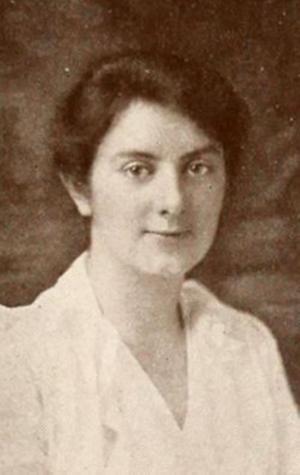URGENT UPDATE: The remarkable legacy of Elisabeth Bristol is back in the spotlight as her vital contributions to preserving Newfoundland’s historic songs are being rediscovered. Born on August 22, 1895, Bristol’s journey from the Bronx to the remote communities of Newfoundland in the early 20th century has captivated historians and music enthusiasts alike.
New reports confirm that Bristol, who graduated from Vassar College in 1917, became a key figure in documenting the rich oral traditions of Newfoundland. In 1929, she joined forces with musicologist Grace Yarrow Mansfield as part of the Vassar College Folklore Expedition. Together, they collected and recorded 189 traditional songs, many of which had never been written down before. Their groundbreaking work culminated in the publication of “Ballads and Sea Songs of Newfoundland” by Harvard University Press in 1933.
This collection includes a variety of genres, from tragic sea ballads to lively dance tunes, showcasing the diverse influences of English, Irish, French, and Scottish traditions. Notable songs documented include “The Squire’s Young Daughter” and “The Lass that Loved A Sailor.” The importance of these songs lies not only in their melodies but also in the stories they tell—stories that might have faded into obscurity if not for the dedication of Bristol and Mansfield.
Elisabeth Bristol’s connection to Newfoundland began with her volunteer work for the Dr. Wilfred Grenfell Mission, which focused on providing educational and social services to rural communities. Her passion for the area’s music led her to return each summer, where she immersed herself in local culture and folklore. This commitment resulted in a treasure trove of songs that reflect the unique heritage of Newfoundland.
In addition to her scholarly work, Bristol actively shared her findings through public lectures. In 1933, she presented “Teaching and Learning in Newfoundland” at the Broad Street School in Westerly, Connecticut, dressed in authentic Newfoundland attire. Her engaging performances allowed audiences to experience the music firsthand and deepened their appreciation for the cultural richness of the region.
During her time in Westerly, Bristol welcomed musicians such as Pete Seeger into her home, fostering a community of artists eager to learn about Newfoundland’s musical traditions. Her impact on the folk music scene extends beyond her lifetime, as her work continues to inspire new generations of musicians and scholars.
Elisabeth Bristol passed away in February 1980, leaving behind a legacy that is more relevant than ever. The renewed interest in her work is a testament to the importance of preserving cultural heritage, especially in an age where traditional music faces challenges from modern influences.
As her story gains traction, music lovers and historians are urged to explore the rich songs of Newfoundland that Bristol so passionately documented. Her work serves as a reminder of the power of music to connect us across time and space, ensuring that these tales and melodies will resonate for years to come.
Stay tuned for more updates on Elisabeth Bristol’s legacy and the ongoing revival of Newfoundland’s folk music traditions. This is a story that deserves to be shared widely—let’s keep the music alive!







